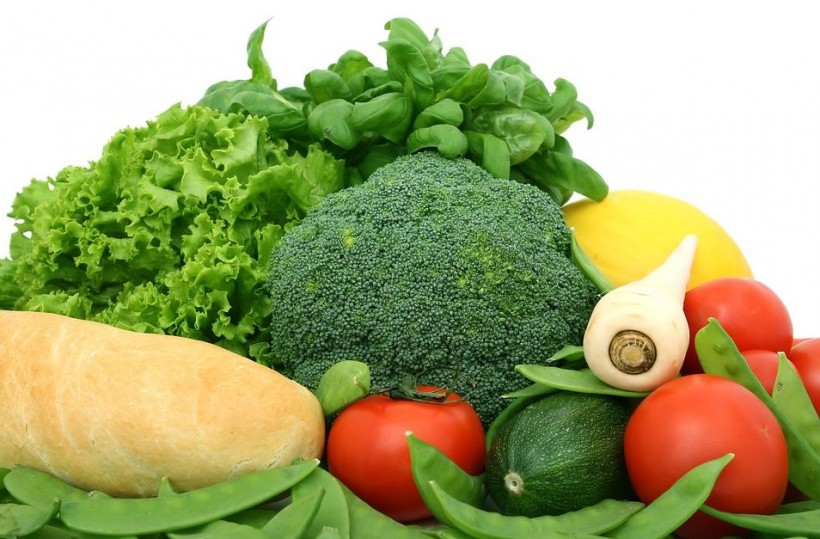What Should HIV Patients Eat And Avoid?
Warning: Undefined variable $post in /home/dietofli/public_html/wp-content/plugins/code-snippets/php/snippet-ops.php(584) : eval()'d code on line 3
Warning: Attempt to read property "ID" on null in /home/dietofli/public_html/wp-content/plugins/code-snippets/php/snippet-ops.php(584) : eval()'d code on line 3
The estimated reading time is 6 minutes
Warning: Undefined variable $post in /home/dietofli/public_html/wp-content/plugins/oxygen/component-framework/components/classes/code-block.class.php(115) : eval()'d code on line 3
Warning: Attempt to read property "ID" on null in /home/dietofli/public_html/wp-content/plugins/oxygen/component-framework/components/classes/code-block.class.php(115) : eval()'d code on line 3

Being diagnosed with a serious condition such as HIV doesn’t mean it is the end of the world. By adjusting your diet and lifestyle, it may be possible to maintain a healthy, fulfilling life. It is essential to avoid eating certain foods since they intensify your HIV symptoms. Being healthy overall can greatly minimize the risks and help your body remain healthy for many years. HIV patients must avoid specific foods while increasing their intake of others. Doing so will reduce the health risks and help you maintain a happy life. Which foods must be consumed regularly, and which should be avoided? Readers will find out in the guide below.
Why Diet Ultimately Matters
Patients must focus solely on their diets because they will prove important in the long run. Following a healthy diet plan ensures that the patient’s body has the fuel needed to thrive. It can boost the patient’s immune system functions so they can fight off illnesses more efficiently. Furthermore, it ensures these individuals aren’t eating unhealthy dishes that could lead to other complications. Integrating a healthy diet into your lifestyle will prove to be helpful. Although diet is indeed vital, HIV patients cannot ignore the other necessities such as their medications and exercise.
Greatly improving one’s lifestyle can help one remain healthy for many years to come.
Which Foods To Consume More
Patients need to consume certain foods more often. Others need to be avoided. Eating specific foods can enhance the functions of the immune system and fight off diseases easier. Below, patients will discover which foods they should consume more frequently. Those who need HIV medications should check https://kangaroo.co/.
Fruits & Veggies
First, HIV patients should add more veggies and fruits to their plates. Eating an abundance of these foods will prove to be beneficial because they contain many antioxidants. Why will this make a difference? Fruits and veggies can boost the performance of the patient’s immune system so they can remain healthier for longer. To ensure you’ve eaten enough per day, it is pertinent to make sure your plate is at least half veggies and fruits. Consuming a variety of these foods can help ensure you obtain sufficient minerals and vitamins.
Lean Protein
Don’t hesitate to consume more lean proteins throughout the day because doing so will be immensely helpful. When you consume more, you’ll boost your muscle-building capabilities. In return, these foods are going to enhance your immune system and make you more resilient to illnesses. It is wise to begin consuming more poultry, fish, beans, nuts, and lean beef. Devouring these foods will ensure your body has plenty of lean proteins so you can enhance your health and muscle-building capabilities. During the latter stages of HIV, you may experience severe weight loss.
When this happens to you, it is essential to consume more protein. Be sure to consult with your local medical professional to find out what works great for you. They’ll help you configure a dosage that works best for your lifestyle and condition.
Whole Grains
Don’t forget to fill your plate with delicious whole grains because they’re going to provide numerous perks. Whole grains can boost your daily intake of carbs. You’ll discover that this component will be vital since it fills your body with energy. When you experience HIV symptoms, your body is going to be fatigued. You’ll become exhausted around the clock and this will make your life more difficult. It is pertinent to find ways to enhance your energy levels. Eating more whole grains will prove to be helpful for this reason.
Whole grains will provide the body with sufficient fiber and vitamin B. One benefit of fiber is the fact it will minimize the risk that you’re going experiencing lipodystrophy which is common among HIV patients.
What To Avoid
While some ingredients should be added to your dish, others need to be avoided. Therefore, it is pertinent to find out what you shouldn’t eat too often. By avoiding these ingredients, you can improve your health and remain healthy. Use the advice provided below to avoid potential problems.
Be Careful With Salt & Sugar
It is undoubtedly true that salt and sugar will make many dishes much better. However, you need to avoid them. They will lead to issues with your health. It is essential to realize that having HIV is going to boost your risk of developing heart disease. You don’t want this to happen. If you’re consuming too much salt or sugar, the risks are going to climb even higher. Overcome this problem by reducing your intake of salt and sugar. In general, less than 10% of your daily calorie intake should come from substances with added sugar. In addition to this, minimize your sodium intake. It should be 2,300mg or less. Follow the advice above and the risks will be minimized.
Healthy Fats
You need to be cautious when consuming fats. Although they offer some perks, they can cause additional issues. Therefore, you should moderate. Fats can be helpful because they’ll give you added energy. However, they’re going to increase your calorie intake as well. You’re likely not trying to add more weight to your body. Therefore, you should take steps to reduce the number of healthy fats you consume each day. Some of the best choices you have include vegetable oils, avocado, and nuts. Make sure you don’t consume too much though because it could create problems.
When To Talk To Doc
Remember that you should talk to your doctor regularly. If you’ve lost your appetite or have been experiencing nausea, it is wise to discuss it with your doctor. You may also experience mouth issues, such as pain or swelling. If you’ve noticed either, stop what you’re doing and talk to your doc. There is a good chance he or she will help. Furthermore, they can help you determine the number of calories you should receive each day. Follow their advice closely because they have your best interest at heart.














